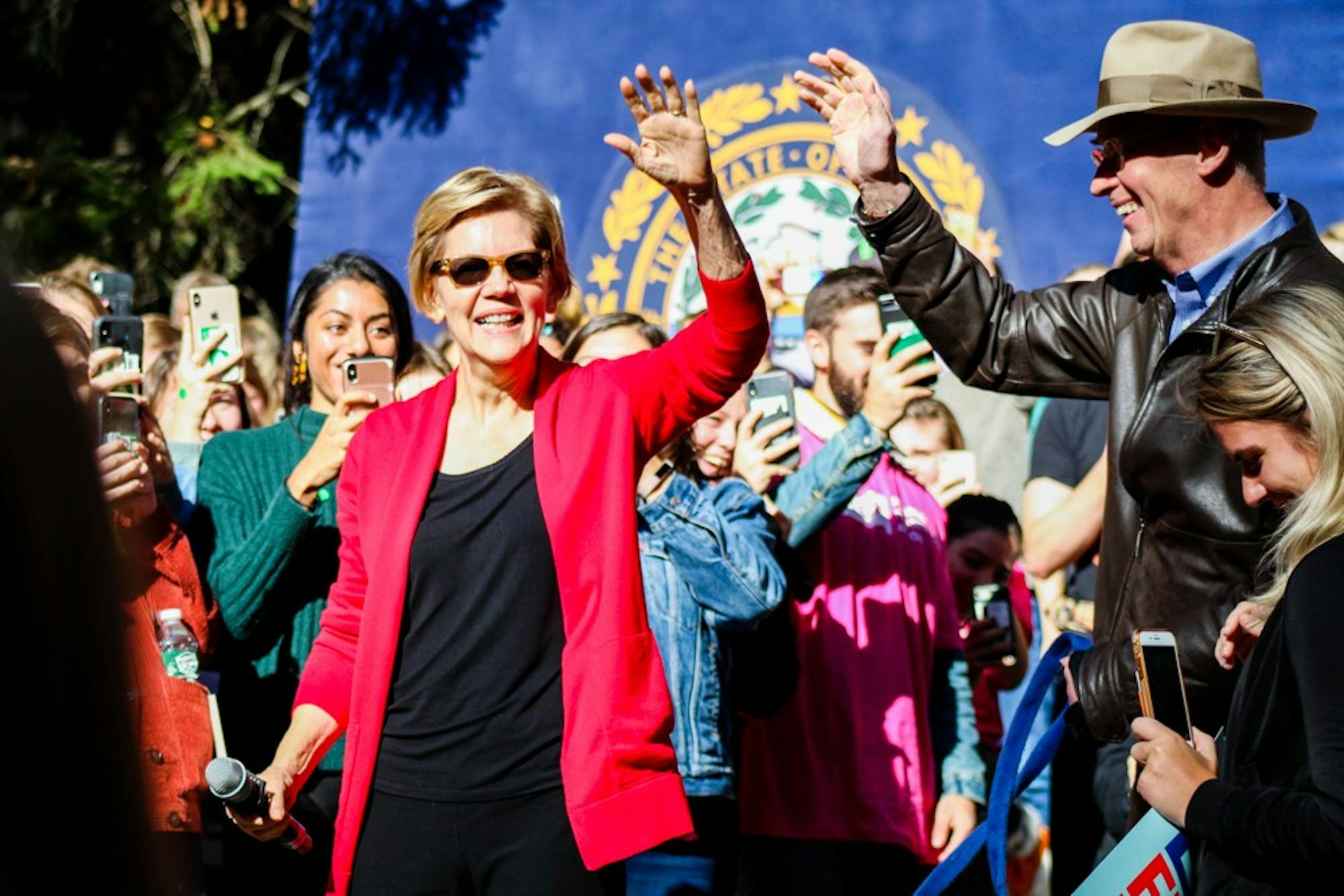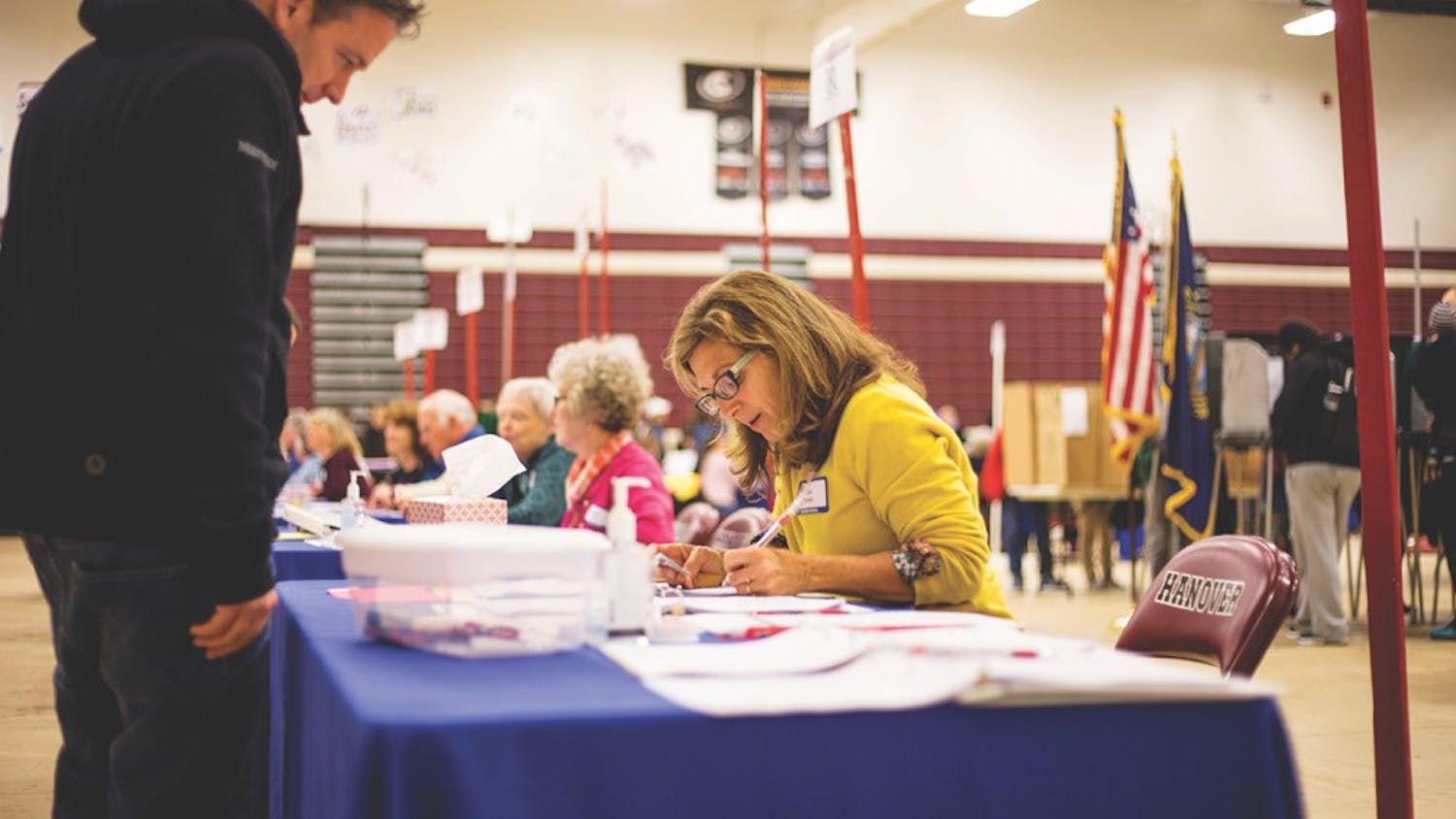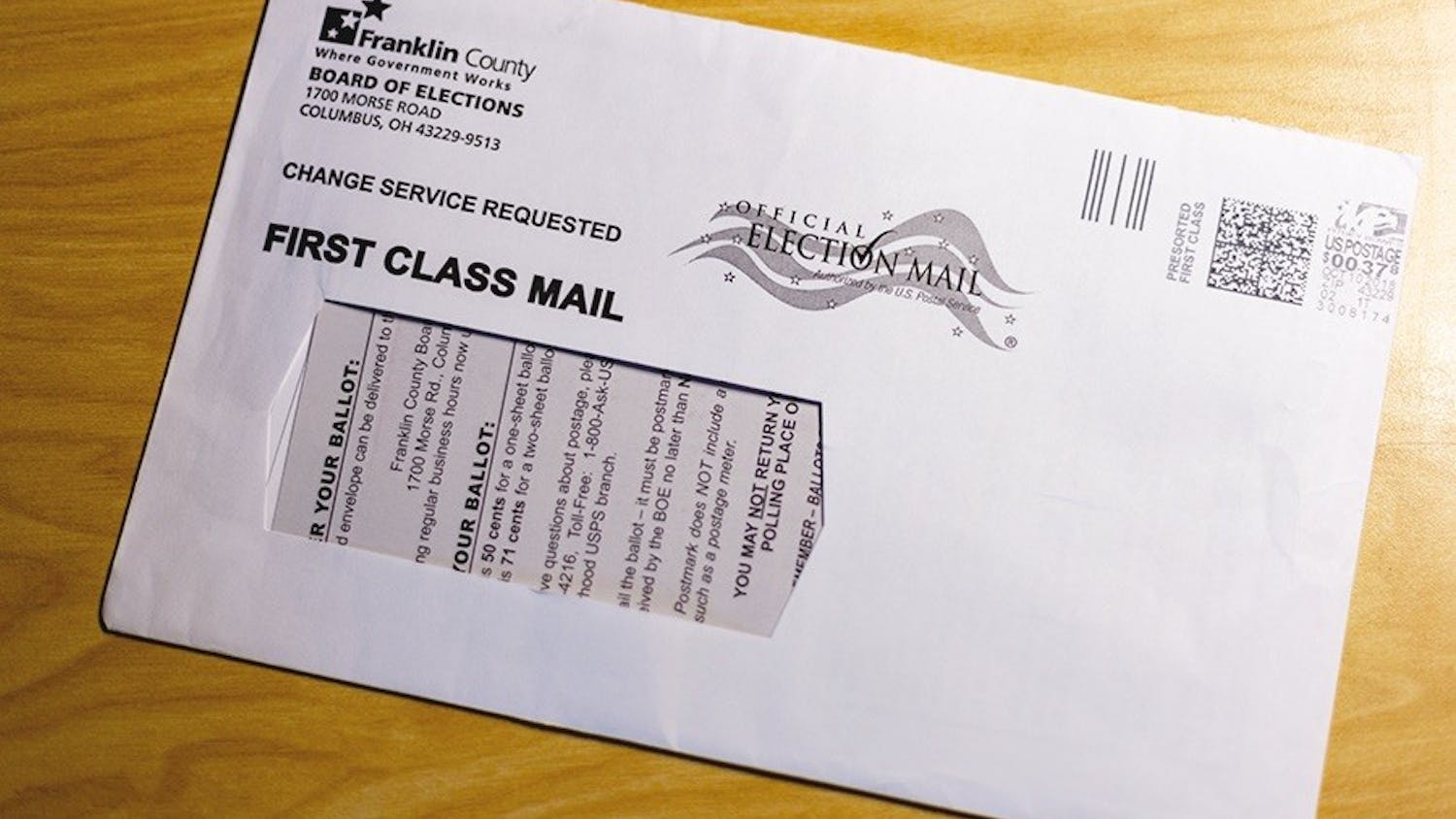Before coming to Dartmouth, meeting a political candidate was never on my radar. Candidates are rarely eager to come to my small town in Florida. Suddenly, however, in my first two months as a Dartmouth student, I have shaken Bernie Sanders’ hand and hugged Elizabeth Warren. Other students have had candid conversations with Michael Bennet and Cory Booker. As the nation’s primary election approaches, candidates are materializing on campus, and more are sure to appear. This practice has been in place since 1964, when New York Governor Nelson A. Rockefeller ’30 came back to Dartmouth to campaign in the New Hampshire primary.
New Hampshire holds the first-in-the-nation primary, which makes visiting it a priority for political candidates. New Hampshire voters are particularly advantaged when it comes to meeting political candidates, according to Riley Gordon ’22, president of the Dartmouth College Democrats.
“There are voters in New Hampshire that talk about how they won’t even consider voting for a candidate until they’ve shaken their hand four times,” Gordon said. “That’s something that no one in any state other than Iowa can say.”
Accoeding to College Democrats member Katie Smith ’22, New Hampshire voters have more encounters with political candidates than most citizens. She explained that New Hampshire is a “purple state,” meaning there is a similar number of Republican and Democratic voters, so candidates are bound to come to sway the color scale toward red or blue.
“New Hampshire in and of itself is a purple state, so they’re going to be here anyway A) to win the primary and B) to come back to try to win New Hampshire in the general,” Smith said.
College Democrats member Madeleine Bernardeau ’22, echoed this in her description of New Hampshire’s importance in the presidential race. She referenced the common saying that the road to the White House runs through New Hampshire, due to our role in the primary.
Dartmouth is particularly attractive to political candidates seeking young voters. Dartmouth being a well-known institution in an early voting presidential primary state is a big draw for candidates, Gordon said.
“Candidates want to be involved with young people, and they’ve hit the jackpot with Dartmouth,” Gordon said.
Smith pointed out that the votes of Dartmouth students could make or break a candidate’s election, citing New Hampshire Senator Maggie Hassan’s 2016 election as an example. She won by close to one thousand votes, a number that could essentially be represented by voting Dartmouth students. Because of this, Smith reaffirms, candidates see the importance of courting student voters.
The relationship between candidates and Dartmouth students is mutually beneficial. Students are given the opportunity to personally interact with political candidates, which is advantageous in a number of ways.
“For us, it’s a good opportunity to get candidates to answer questions that come from all these different perspectives that Dartmouth students have based on where they’re from and what they’re studying. It’s a really high tier of political discourse that happens among Dartmouth students and political candidates,” Gordon said.
Claire Azar ’22, Secretary of the Dartmouth College Republicans wrote in an email statement that she believes that the presence of political candidates on campus is greatly beneficial to Dartmouth students.
“Through this tradition of bringing candidates from both sides of the aisle, the Dartmouth community has the chance to learn and engage from listening to a diversity of viewpoints. Something I think is very important for young adults.”
Even for students who are less politically active, the interaction between Dartmouth students and political candidates can ignite a greater interest in politics, according to Bernardeau.
“It’s really great to see how many people will come out to these things who aren’t super politically active. They’ll come just because it’s cool and they’ll end up liking their ideas,” Bernardeau said.
Bernardeau explained that candidate visits can greatly affect the opinions of students. She said that for some students, it can mean the difference between voting for a candidate or not considering them at all.
Gordon said he believes that going to a candidate’s event is an opportunity for students to bring an issue they are passionate about to the attention of senators and governors, or even the next president, and make a meaningful difference. Even if the visiting candidate is not polling well, Gordon encourages students to go to their events.
“I would recommend coming to see some of these candidates that are polling lower. When Michael Bennett came, he talked for 20 minutes and then took unfiltered questions from the crowd. He’s a United States senator who’s just taking questions ... It’s insane — he’s a senator!” Gordon said.
The tradition of political candidates coming to campus has, at times, provided students with political oportunities. In the ’08 election, Gordon recalled, Dartmouth held a debate for the candidates. An alumni from the Class of 2011 stood in for one of the candidates during the lighting check because he was the right height. Another Dartmouth student was put in the spotlight after Jay Inslee visited campus.
“The president of Dems in the winter asked Inslee a question or said something to him. On CNN two nights later, he said ‘Oh I met this student at Dartmouth who said this.’ He is the governor of Washington quoting a Dartmouth student on national television on CNN,” Gordon said.




